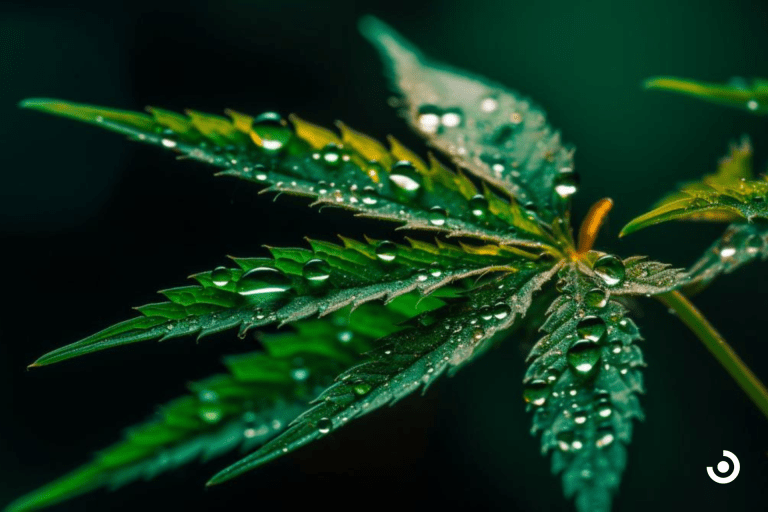Psoriasis
What is Psoriasis?
The National Psoriasis Foundation (NPF) describes psoriasis as an immune-mediated skin disease characterized by the inflammation of immature skin cells from a dysfunctional immune system.
It is unclear what the exact cause of psoriasis is, and symptoms can occur at any age among men, women, children, and people of all ethnicities. When symptoms begin, the most common age range is between 15 and 25 years old, and they are typically long-term with highs and lows regarding severity.
How common is psoriasis?
- There are more than 8 million people with psoriasis in the United States.
- 2 to 3 percent of the entire population, or approximately 125 million people worldwide, have psoriasis, as stated by the World Psoriasis Day association.
What triggers psoriasis?
While the specific cause is unknown, psoriasis is a skin condition thought to be caused by a combination of genetics and environmental factors. The known facts are that it is not contagious and is caused by a weak immune system.
According to the Mayo Clinic, these are the most common triggers:
- skin infections
- Strep throat
- Cold, dry weather conditions
- Bite, scrape, cut, or sunburn
- High-stress levels
- Smoking and secondhand smoke
- Heavy alcohol use
- Lithium-based, high blood pressure, and antimalarial medications
- Rapid withdrawal from corticosteroids
Psoriasis symptoms
People with psoriasis can experience a variety of other symptoms, ranging from mild to severe:
- red patches of skin cells ranging from a few spots to covering larger areas of the body
- scaly skin with silver tones
- dry, cracked skin that may bleed
- itching and burning of the skin
- skin’s surface soreness
- thickened or brittle nails
- Stiff and inflamed joints
Types of Psoriasis
There are many different types of psoriasis:
- Plaque psoriasis is the most common type; symptoms include dry and red, scaly patches of raised skin, typically on elbows, knees, scalp, and low back. It is characterized as an abnormal proliferation and differentiation of human keratinocytes leading to epidermal hyperplasia.
- Pustular psoriasis presents itself in pus-filled skin legions. It usually includes widespread patches on the palms of hands and soles of feet. Although not as expected, this one is generally moderately severe on the psoriasis area severity index.
- Inverse psoriasis is commonly found in the skin folds of the groin, buttocks, and breast areas. It can be triggered by a fungal infection and excessive sweating and movement, and its t cells typically thrive in a fatty environment.
- Guttate psoriasis typically affects younger adults and children. It can be triggered by an infection such as strep throat that can weaken immune cells and may include small, droplet-shaped legions on arms and legs.
- Nail psoriasis affects the fingernails and toenails. It can cause pitting, discoloration, loose or separated nails, and in severe cases, even cause the nails to crumble.
- Erythrodermic psoriasis is the least common type of psoriasis. It can cause extreme itching, peeling, and burning across the entire body.
- Swollen and painful joints characterize psoriatic arthritis. It can affect any joint, so its severity depends significantly on the area it impacts on the body. In severe forms, it can result in permanent joint damage.
Skincare Benefits of Medical Cannabis
Cannabis, especially CBD, is highly prevalent in today’s society. CBD to control pain and treat skin conditions can be traced back to ancient times, as they used it in abundance during religious practices and rituals.
The earliest uses of cannabis for skincare can be traced back to Ancient Egypt. Pharaoh Ramses II was known to partake in cannabis and encouraged others to use the plant.
During the 20th century, cannabis was extensively criminalized; however, changing laws and further research into the compounds within the plant led to a slow but vast reconsideration of their potential health benefits. The use of cannabis is becoming more widely accepted today due to the balancing effects of this particular cannabis-derived compound.
“CBD can bind to receptors in the human body that are part of the cannabinoid system, called the endocannabinoid system, that can influence pain, itch, and mechanisms of inflammation,” Dr. Friedman states.
“We know that when CBD binds to the cannabinoid receptor type 2 and other receptors, it can be involved in not just anti-inflammatory activity, but it can become the chemical messengers to facilitate an array of activities that resolve inflammation. It can stimulate the secretion and recruitment of skin cells important for removing debris and proper skin maturation and healing.”
The Endocannabinoid System
Cannabinoids are found in the cannabis plant and are produced naturally by the human body. We have an endocannabinoid system (ECS) that internally produces cannabinoids. These compounds are essential to maintaining internal balance through many-body systems.
Cannabinoids interact with our ECS to help maintain functional balance through a system of messenger molecules and receptors. Sleep, energy, cardiovascular function, reproduction, stress, chronic pain, motivation, appetite, digestion, and more are some of the body functions that cannabinoids impact.
The endocannabinoid system comprises an extensive network of chemical signals and cellular receptors densely packed throughout our brains and bodies. The “cannabinoid” receptors in the brain — the CB1 receptors — outnumber many other receptor types in the brain. They act like traffic cops to control the levels and activity of most of the other neurotransmitters. This is how they regulate things: by immediate feedback, turning up or down the movement of whichever system needs to be adjusted, whether hunger, temperature, or alertness.
Our bodies produce molecules called endocannabinoids to stimulate these receptors, which have a structural similarity to molecules in the cannabis plant. The endocannabinoid system regulates learning and memory, emotional processing, sleep, temperature control, pain control, inflammatory and immune responses, and eating. This vital system is currently at the center of renewed international research and drug development.
Does medical cannabis help with psoriatic arthritis?
An article by Elizabeth Hanes, RN for Healthgrades, reads:
“Researchers currently think taking in cannabinoids from the cannabis plant may help activate the body’s endocannabinoid system and facilitate its’ effects in dialing down the body’s inflammatory response, which could reduce the symptoms of diseases like psoriasis and PsA. Both THC and CBD can influence symptoms of inflammatory diseases. Which substance you use depends on which symptoms you want to alleviate.”
Are there treatment options or a cure?
There is not currently a cure for psoriasis as the origin of the disease is still widely unknown.
However, there are a few treatment options and a drug comprised of ingredients that help to treat psoriasis that the FDA approves:
- Hydrocortisone creams
- CBD oils and topicals
- Oral Medications
- Biologics injections
- Light Therapy
CBD Medical study
Adam Friedman, MD Chair of Dermatology, Residency Program Director, and Director of the Supportive Oncodermatology Clinic at George Washington School of Medicine and Health Sciences, researched the connection between CBD and psoriasis.
His literature review concluded that CBD could have a positive effect on white blood cells and could undoubtedly be used as a complementary treatment to a patient’s current treatment plan.
Is MMJ good for psoriasis patients?
Recent studies from medicine and health sciences professionals suggest that certain cannabis products may effectively treat the overactive immune system causing psoriatic disease. It can connect with the cannabinoid receptors of the body to combat the proinflammatory t-cell responses needed.
It has been used to treat rare skin conditions, Crohn’s disease, neuropathic pain, particularly autoimmune disease, inflammatory bowel disease, acute psychosocial stress, and many other conditions. More research is needed to make an accurate scientific determination of the health benefits of medical marijuana for people with psoriasis.
CBD and Psoriasis
Recent peer-reviewed studies within the dermatological science field show that CBD, as a complementary treatment with other medications and sometimes even as an oil or topical therapy for affected skin, offers potential benefits for people with psoriasis.
Specific CBD dose-related effects may even offer an immune response in slowing cell growth so that new skin cells react differently.
Summary
As always, we recommend speaking with your dermatologist or another healthcare provider before making any changes or adding CBD use to your psoriasis treatment.
However, recent studies and continued research strongly suggest you may be able to find some health benefits and even symptom relief from the right cannabis products.
Last Updated: June 14, 2024
Get Your Medical Card
Connect with a licensed physician online in minutes
Table of Contents
Keep Reading
-
Exploring THC Vs CBD For Relaxation Effectiveness
Looking for the ultimate relaxation? Discover if THC or CBD is the key. Uncover which compound delivers unrivaled calmness and serenity. Click now to find your perfect chill!
-
Using Medical Marijuana for Pain Relief in PA: What You Need to Know
Find out how medical marijuana can help with pain relief in PA. Learn about different strains, dosing, and how to get started.
-
Delicious Cannabis Edibles Recipes To Try
Discover a delectable collection of cannabis edibles recipes that will tantalize your taste buds and elevate your experience. From savory dishes to sweet treats, explore these must-try recipes today!



